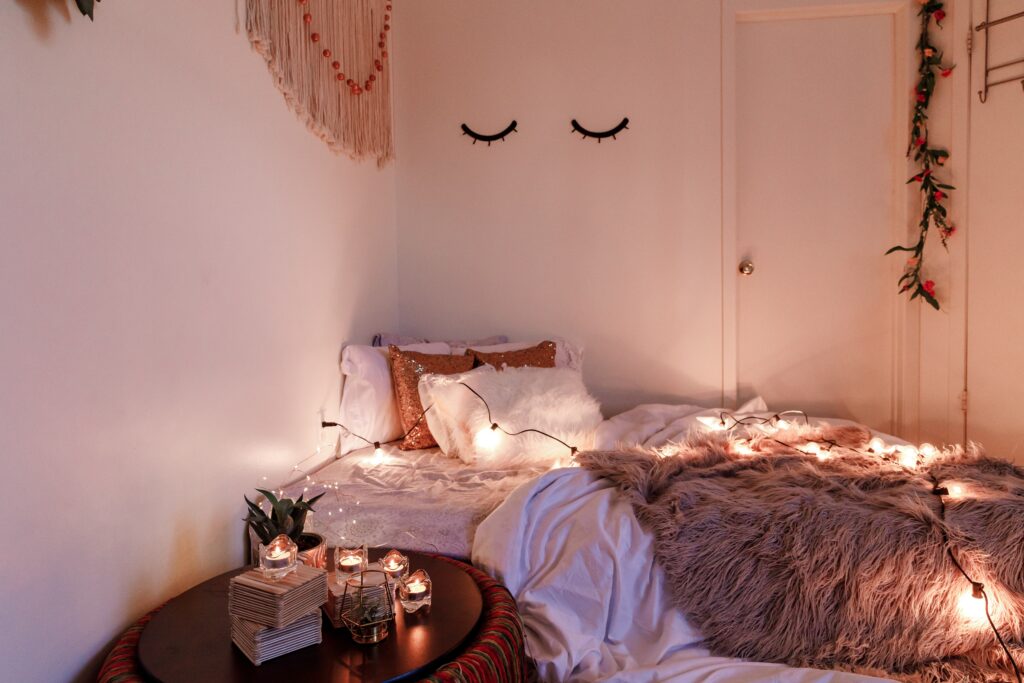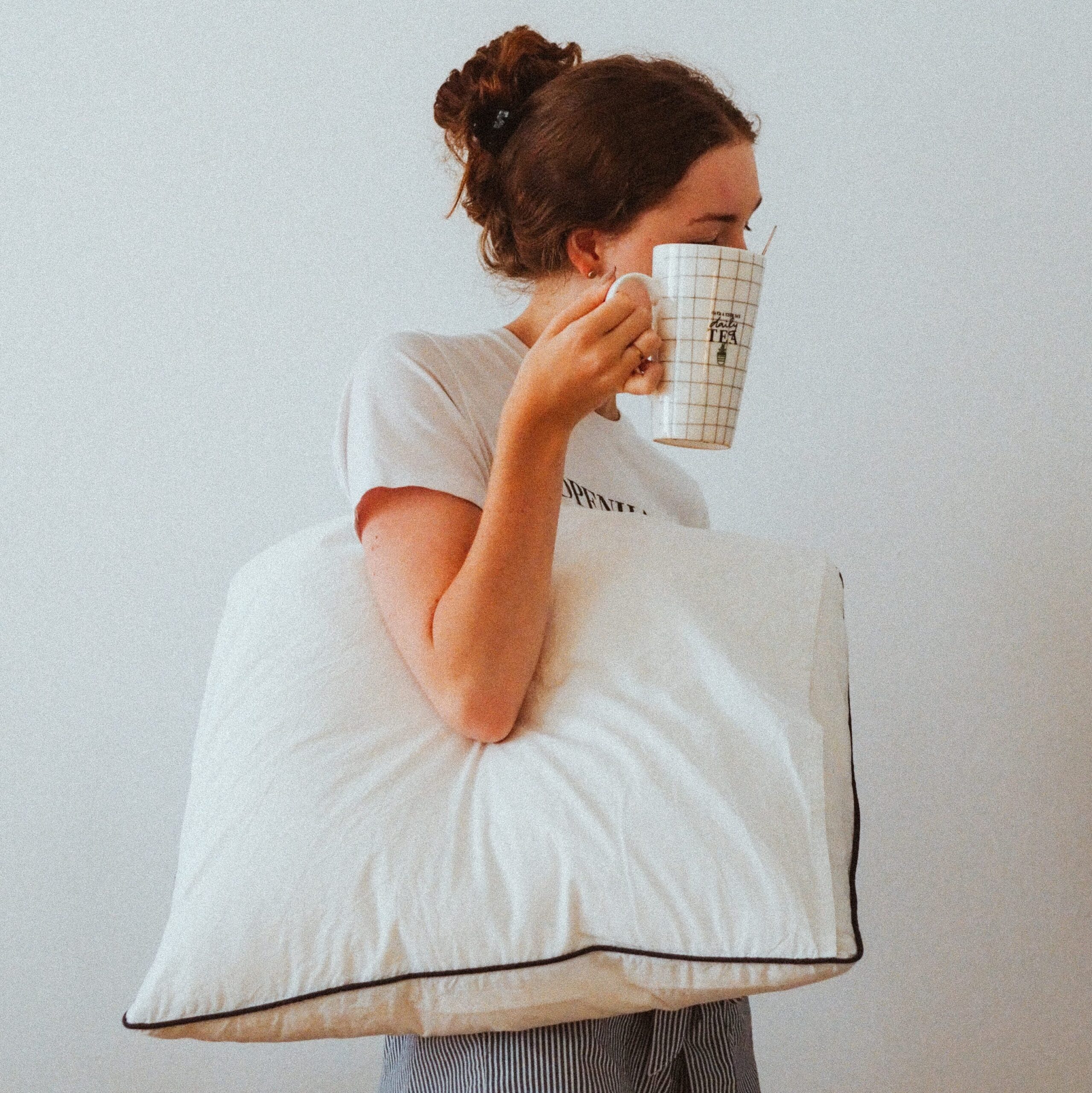Does your mind get foggy sometimes? Maybe you were up late learning lines or out at an event, and then the next day, it’s hard to think straight? Been there, done that! With this coming week (Mar. 13-19) being Sleep Awareness Week, I want to make sure you’re getting enough shut-eye so you can truly shine when you need to!
Now, I’ve sung the brain-boosting praises of power napping before, but if you really want to keep your brain and body functioning properly, it’s way more crucial to get a good night’s rest!
Not only does sleep help keep you on your toes at work and on the homefront, but it’s what I like to call a vital food that keeps your body and brain in tip-top shape. And right now, our bodies and minds are under a ton of stress! You may not even realize it until your head hits the pillow at night.
Sleep (or lack thereof) affects our entire body—from our hormones, how we fight illness, how much and how well we eat, to our organs and cardiovascular system. But today, we’re going to concentrate on how it affects our mind. Because let’s face it, if your head isn’t in the game, it’s going to show and it’s going to affect your acting performance.
Here’s the 411 on how sleep is the brain’s pit crew—plus a few tips to help you get to dreamland a little faster!

Your Brain Needs Rest To Function
I mentioned how chronically sleep deprived Americans are; one third of Americans sleep for less than 7 hours each night. But new research indicates a 37% increase in rates of clinical insomnia during this global pandemic. And I can tell you from my own experience, that’s definitely the truth!
This is bad news, my friends, considering recent evidence indicating that chronic sleep deprivation can lead to “irreversible brain damage”. (Say what!?) Yep, pulling repeated all-nighters affects the neurons in your brain that help you stay alert and use good judgment. Now, scientists are beginning to wonder if those effects are permanent.
When we sleep, our bodies release chemicals to repair our brain cells and clear away the cobwebs, so to speak. So it’s important, we do our part and get some seriously good rest!

Sleep Helps Detox Your Body
Your brain is like a busy city. When you tuck in for the night, it doesn’t shut down just cause you’re laying down. In fact, several departments in your brain clock in for the night shift.
One of the most interesting is the glymphatic system, which is like your very own Department of Waste Management. It flushes out toxins that build up during the day using the clear cerebrospinal fluid that surrounds your gray matter, but the key here is: it only happens when you’re asleep.
What’s even more fascinating is that this process was only discovered in the last decade!
According to Dr. Maiken Nedergaard heading up the breakthrough 2013 study for University of Rochester Medical Center, this new system could advance the treatment of “dirty brain” diseases like Alzheimer’s.
A good night’s rest is also nature’s personal secretary. While you’re resting, your mind is busy labeling and filing away everything that happened during the day before. Your noggin’ is creating your memories while you dream: “One of the chemicals involved in creating memories — acetylcholine — is also involved in sleep and dreaming.” The neurotransmitter may also be helping you find solutions to tough or frustrating problems lingering in your peripheral consciousness. Like the expression says, maybe you just need to sleep on it.
5 Tips To Ensure A Good Night’s Rest
Now, you may be thinking, “Moniqua, I know how to go to bed. It’s pretty easy,” but ask yourself how much sleep you’re actually getting? Do you go to bed at the same time every night, or is it a crap-shoot? Do you wake up feeling refreshed and energized?
Uh hmm, see what I mean? But no shame, girl! We could ALL use some help catching extra zzz’s. Here are a few quick tips to make sure you get a good night’s rest.
1) Keep your clocks synced.
Implement a gentle nighttime routine to signal your body that it’s time to wind down, so that you can maintain a consistent bedtime every night. This will help ensure you get enough sleep to keep your neurons healthy. For tips on a night time routine, click here.
2) Use lighting to set the mood for sleep.
Mood lighting isn’t just for sexy times, ladies. Turning off electronics and dimming the lights at least an hour before bed will help prepare your body and mind for rest. That’s because the blue light tricks us into thinking it’s daytime. Get creative with it: twinkle lights, remote-controlled faux candles, real candlelight, whatever puts you in the mood… for sleep.

3) No midnight snacking.
You want to put some distance between your bed and your last meal, as tempting as it may be to carb load and then sleep it off. Try not to eat within a few hours of bedtime, so your digestive processes won’t keep you awake.
4) Avoid indulging before bed.
I know that a nightcap may seem like a good idea but ultimately, it will do the opposite of what you imagine. Alcohol will definitely relax your body at first, but then once the sugar in it kicks in, you’ll be too high to head to bed. Nicotine and caffeine are definitely no-nos as well. Their stimulating effects take hours to wear off and can wreak havoc on quality sleep.
5) Create a comfy space to sleep.
If you’re a temperamental or reluctant sleeper, nothing is a better motivator than a comfortable bed in a beautiful environment. So perhaps it’s time for a little room makeover? Click here and here to see tips where to splurge on your bedroom essentials.

Have you been struggling to get a good night’s rest? What helps you fall asleep? Let me know about your experience in the comments below.
LOVE + blissful rest



+ show Comments
- Hide Comments
add a comment